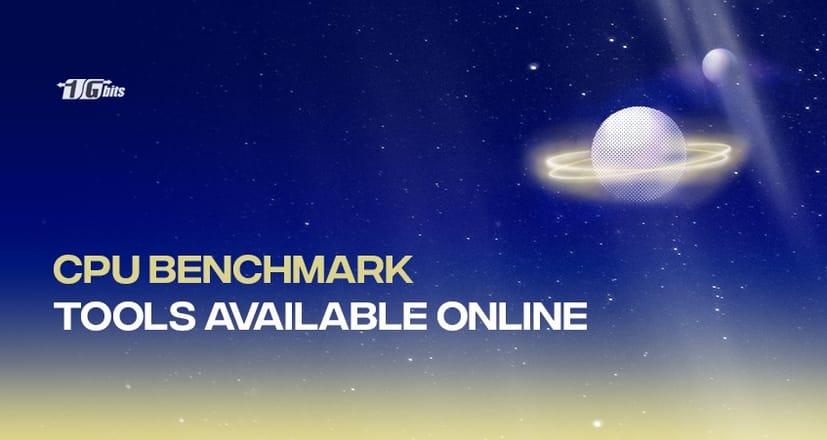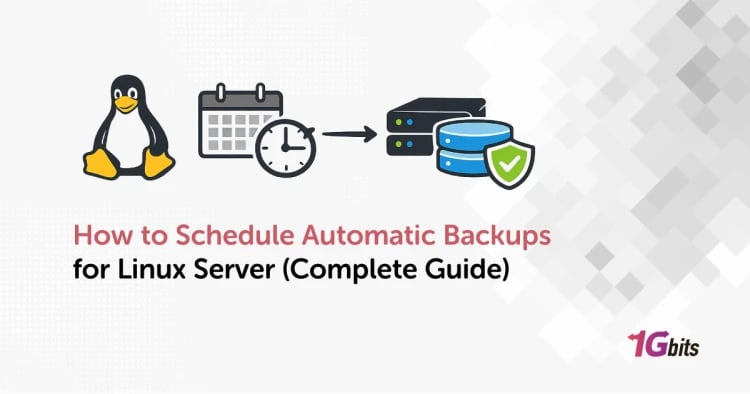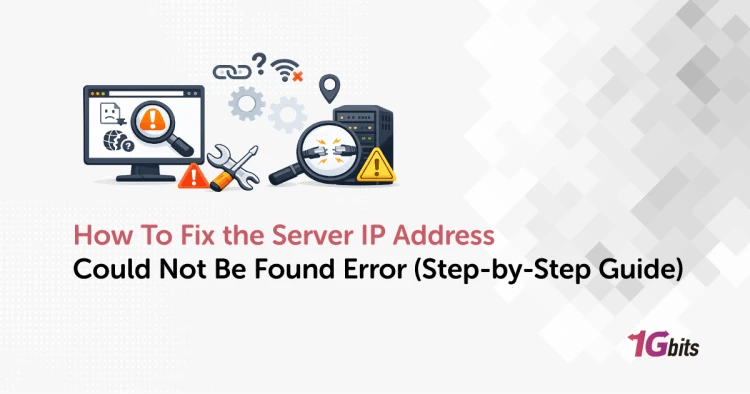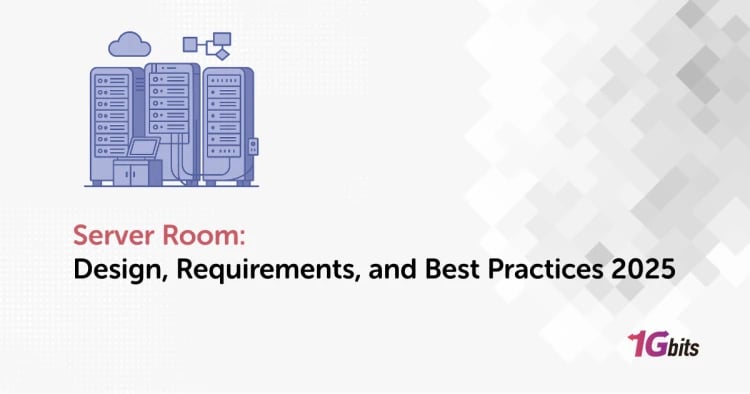When your computer slows down, lags during gameplay, or struggles with heavy software, your CPU may be the bottleneck. Whether you're a gamer, overclocker, hardware enthusiast, or just someone shopping for a new PC, CPU benchmark software is essential for understanding your processor’s capabilities.
In this guide, we’ll explain what CPU benchmark software is, how it works, and introduce you to the best CPU benchmark software available in 2025. Whether you want free CPU benchmark software, open source options, or Intel and AMD-specific tools, you’ll find everything you need here.
What Is CPU Benchmark Software?
CPU benchmark software is a tool that tests your computer’s processor under simulated workloads and performance conditions. It gives you a score or result based on how well your CPU handles the tasks. These results are especially useful for comparing different processors or evaluating how upgrades, overclocking, or thermal conditions affect performance.
A CPU benchmark test evaluates:
-
Single-core performance (important for older software and gaming)
-
Multi-core performance (crucial for multitasking, video rendering, and modern apps)
-
Thermal efficiency and stability
-
Instruction per cycle (IPC) efficiency
Think of it as a performance meter—benchmarking tools run CPU-intensive tasks like rendering, mathematical calculations, or compression, then measure how quickly your processor completes them.
Why Use CPU Benchmark Software?
There are several reasons why you may want to use a CPU benchmark tool:
-
Upgrade decisions: Compare your current CPU with newer models.
-
Performance troubleshooting: Identify if the CPU is causing system slowdowns.
-
Overclocking verification: Ensure the processor is stable at new clock speeds.
-
Gaming and rendering optimization: Measure how well your CPU handles games or video workloads.
-
Compare performance by price: Find the cpu benchmark with price ratio that fits your budget.
If you're managing cloud hosting or dedicated servers, these tools are vital for hardware evaluation. Buy Dedicated Server Hosting with confidence by benchmarking your processor first.
Benchmarking Tools vs. Application Benchmarking Tools
It’s important to note the difference between general-purpose benchmark tools and application benchmarking tools. The former focuses on CPU, GPU, and system-wide performance under synthetic conditions, while the latter tests how well specific applications (like Photoshop or AutoCAD) perform in real-time usage scenarios.
If you're using Linux, you might also want to read: Linux Commands to Check CPU Information
How Does a CPU Benchmark Test Work?
A typical CPU benchmark test includes multiple layers:
-
Synthetic Tests: Artificial workloads like prime number calculations or compression loops.
-
Real-World Simulations: Encoding a video, opening multiple browser tabs, or exporting 3D graphics.
-
Scoring System: Each software uses a proprietary formula to generate performance scores. The higher the score, the better.
You can run a CPU benchmark at any time, but make sure your system is not under other heavy load conditions to get accurate results.
Best CPU Benchmark Software in 2025
Let’s explore the top CPU benchmark software options currently available. We’ll include free, paid, and open source CPU benchmark software, suitable for Windows, macOS, and Linux.
1. Cinebench R23
Best For: Creative professionals and general users
Platform: Windows, macOS
Price: Free
Cinebench by Maxon is one of the most popular CPU benchmarks for testing single-core and multi-core performance. It simulates rendering a 3D scene using the Cinema 4D engine.
✅ Highlights:
-
Tests real-world workloads (3D rendering)
-
Supports high core-count CPUs
-
Simple one-click test
It’s widely used in the industry and is perfect for comparing AMD and Intel CPUs.
2. Geekbench 6
Best For: Cross-platform benchmarking
Platform: Windows, macOS, Linux, Android, iOS
Price: Free (basic), Paid (Pro)
Geekbench provides CPU and GPU benchmark software in one unified tool. It performs everyday tasks like web browsing, machine learning, and image processing.
✅ Highlights:
-
Easy-to-read scores
-
Good for mobile and desktop comparison
-
Tests both single-core and multi-core
Is Geekbench free? Yes, a free version is available, but advanced features require a license.
3. PassMark PerformanceTest
Best For: Deep performance analysis
Platform: Windows
Price: Free trial, then paid
PassMark is an excellent cpu benchmark program that includes a large database of performance results from thousands of CPUs.
✅ Highlights:
-
Compare against global averages
-
Detailed sub-scores for each component
-
Exportable results for reports
Their CPU Mark is one of the most cited in reviews and forums.
4. UserBenchmark
Best For: Quick system-wide evaluation
Platform: Windows
Price: Free
UserBenchmark tests your CPU, GPU, SSD, HDD, and RAM all in one go. It’s especially handy for gamers or general users who want a simple overview.
✅ Highlights:
-
Fast and easy to run
-
Compares against average systems
-
Great visual charts
Controversial due to bias toward Intel CPUs, but still widely used.
5. AIDA64 Extreme
Best For: Enthusiasts and professionals
Platform: Windows
Price: Paid (free trial available)
AIDA64 offers extensive CPU benchmark tests, stress tests, and real-time monitoring tools.
✅ Highlights:
-
Memory and cache benchmarking
-
Overclocking support
-
Hardware diagnostics and reporting
Useful for system builders and testers.
6. Prime95
Best For: CPU stability, thermal testing, and overclocking reliability
Platform: Windows, Linux
Price: Free
Prime95 is one of the most widely recognized tools in the world of CPU stress testing and benchmarking, particularly popular among overclockers and hardware enthusiasts. Although it wasn’t originally designed as a conventional CPU benchmark software, Prime95 has gained a strong reputation as a powerful way to test the stability of your processor under extreme conditions.
It’s worth noting that while Prime95 doesn’t give you a conventional benchmark score like Cinebench or Geekbench, it’s one of the best CPU benchmark programs to test the reliability of your system build.
Also, when used alongside monitoring tools like Open Hardware Monitor, it becomes an even more powerful combination for real-time temperature tracking during CPU benchmark tests.
7. Open Hardware Monitor
Best For: Real-time monitoring during CPU benchmarking
Platform: Windows
Price: Free & Open Source
While Open Hardware Monitor is not a benchmarking tool on its own, it's an essential companion for any CPU benchmarking process. This open-source application provides detailed real-time insights into your hardware's health—including CPU temperatures, load, clock speeds, voltages, and even fan speeds. When running heavy CPU benchmark software like Prime95, Cinebench, or AIDA64, Open Hardware Monitor lets you observe how your system handles thermal stress and power consumption in real time.
The transparency it offers makes it one of the best open source CPU benchmark support tools for enthusiasts, IT benchmarking tools analysts, and gamers alike. It's particularly valuable if you're running a dedicated server and want to maintain system health during high-load scenarios.
8. NovaBench
Best For: Quick and balanced system benchmarking for everyday users
Platform: Windows, macOS
Price: Free
NovaBench is an accessible and user-friendly CPU benchmark software that appeals to both casual users and IT professionals seeking fast insights into system performance. It provides a balanced test covering the CPU, GPU, memory, and disk speed—all within a short testing duration, often under two minutes. If you're not looking for extremely granular results but need a general performance overview, NovaBench is a great starting point.
While it lacks the extreme detail of tools like AIDA64 or 3DMark, NovaBench excels in simplicity. Its lightweight design means it runs smoothly even on older machines, and it’s frequently used for baseline performance testing before system upgrades or troubleshooting.
9. CPU-Z + Bench
Best For: Detailed system profiling with basic benchmarking functionality
Platform: Windows
Price: Free
CPU-Z is a legendary utility that has long been a favorite among tech enthusiasts and system builders. Primarily designed to provide deep hardware insights—such as CPU architecture, cache levels, RAM speeds, and motherboard chipset—CPU-Z also includes a simple but effective built-in benchmark feature.
The benchmarking tab, known as Bench, allows users to test single-thread and multi-thread CPU performance. It’s not as visually rich or comprehensive as some of the best CPU GPU benchmark software available, but it serves as a solid baseline, especially when comparing performance between two systems or CPUs from the same family.
Plus, it’s completely free and doesn't require installation—making it an excellent portable CPU benchmark tool for technicians and PC builders alike.
10. Phoronix Test Suite (Advanced Users)
Best For: Open-source benchmarking and automated performance testing on Linux
Platform: Linux
Price: Free & Open Source
Phoronix Test Suite stands out as one of the most advanced and versatile CPU benchmark tools available—especially for Linux enthusiasts and professionals. Developed by Phoronix Media, this open-source suite supports hundreds of tests that cover not just CPUs, but also GPUs, storage, memory, and system-level workloads. It can be customized to run specific CPU benchmark tests or comprehensive system diagnostics.
For tech-savvy users running Linux servers, including dedicated servers from 1Gbits, this tool offers unparalleled insight and customization.
Intel and AMD CPU Benchmark Software
Many tools work for both, but some are optimized for Intel or AMD processors:
-
Intel Extreme Tuning Utility (XTU): Offers performance tuning and stress testing for Intel CPUs.
-
Ryzen Master: AMD's official app to overclock and monitor Ryzen CPUs.
GPU and CPU Benchmark Software Free: One Tool, Two Jobs
For gamers and designers, best CPU GPU benchmark software includes:
-
Geekbench
-
AIDA64
-
3DMark (focuses on GPU but also tests CPU physics processing)
These help identify the system’s bottleneck—CPU or GPU.
CPU Benchmark with Price Consideration
When choosing hardware or VPS hosting, it’s smart to compare CPU benchmark with price to find value-for-money.
Websites like PassMark’s CPU List or UserBenchmark allow you to:
-
Filter by performance
-
See current market prices
-
Identify budget or premium-tier processors
How to Run a CPU Benchmark
Running a benchmark is simple:
-
Choose a benchmark tool (like Cinebench or Geekbench)
-
Close other applications for accurate results
-
Run the test (choose single-core or multi-core mode)
-
Review the score and compare it online
Repeat the test under different conditions (e.g., after overclocking) for comparisons.
Is CPU Benchmark Safe?
Yes, benchmarking is safe if:
-
You use trusted software (like the ones listed above)
-
You avoid stress tests on failing or overheating systems
-
You ensure proper cooling during intensive testing
CPU Benchmark Software Free Download
Most tools are available for free download from official websites:
-
Cinebench: Maxon.net
-
Geekbench: Geekbench.com
-
UserBenchmark: Userbenchmark.com
Avoid third-party download sites to prevent malware risks.
Conclusion: Choose the Best CPU Benchmark Software for Your Needs
From casual users to professional system builders, everyone can benefit from CPU benchmark software. Whether you want free options, GPU and CPU combo testing, or Linux-based tools, you now have a complete toolkit to evaluate and compare processor performance.
Still not sure? Start with Cinebench or Geekbench for a simple yet powerful test—and remember to compare your results online.
If you're testing your server performance, don't forget to Buy Dedicated Server Hosting from 1Gbits and ensure your processor meets the demands of your workload.
People also read:






![What Is Cold Data Storage? ❄️ [2026 Guide] What Is Cold Data Storage? ❄️ [2026 Guide]](https://1gbits.com/cdn-cgi/image//https://s3.1gbits.com/blog/2026/02/what-is-cold-data-storage-750xAuto.webp)


